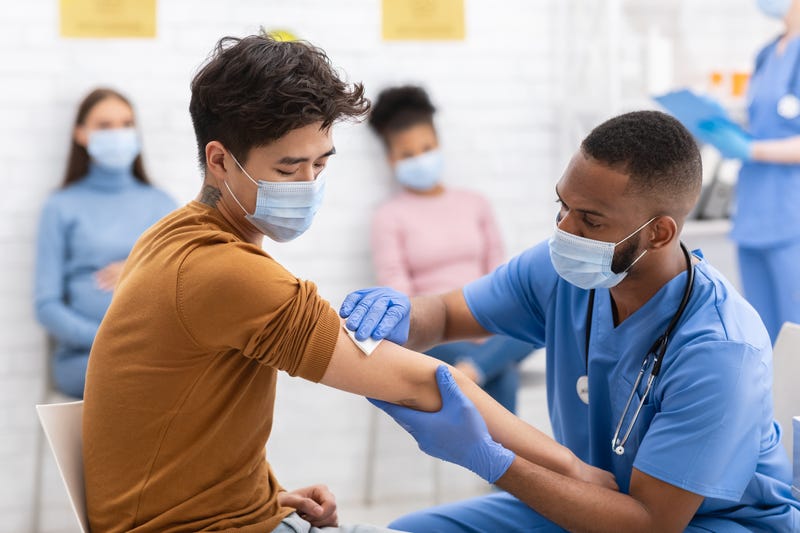
About 24% of unvaccinated young adults between the ages of 18 and 25 say they’re not ready to get a COVID-19 shot.
The main reason – concern about the vaccine’s safety, according to a new study published by UCSF health researchers.
Published in the Journal of Adolescent Health, the study analyzed surveys of more than 5,000 young adults on why some are holding off getting vaccinated, despite widespread availability and data confirming safety and efficacy.
Vaccine hesitancy among young people could impede the country’s ability to reach herd immunity, the researchers wrote, making “targeted public health interventions addressing young adult hesitations ... an important public health priority.”
Most unvaccinated young adults say they intend to get vaccinated.
But 24% that were unsure said they were concerned about the vaccine’s safety and side effects or believed others were in greater need of a vaccine.
Researchers said there were significant differences in reasons for not getting vaccinated between the group who said they "probably will" get vaccinated versus those who "probably/definitely will not."
Those who said they "probably/definitely will not" get the vaccine cited that they do not trust COVID-19 vaccines.
"In follow-up query of reasons for endorsing they did not believe they needed the vaccine, the two most frequently endorsed reasons were 'I am not a member of a high-risk group' and 'I do not believe COVID-19 is a serious illness,'" researchers wrote.
Scientists called for more public education around vaccines for young adults by using social media, among other methods, to reduce hesitancy among youth and young adults.
"Public health initiatives need to adapt rapidly as vaccine intentions and availability change," researchers wrote. "Continued monitoring of vaccine intention, motivations, and barriers to access...can contribute to improved messaging and targeted outreach to increase young adult COVID-19 vaccination."

